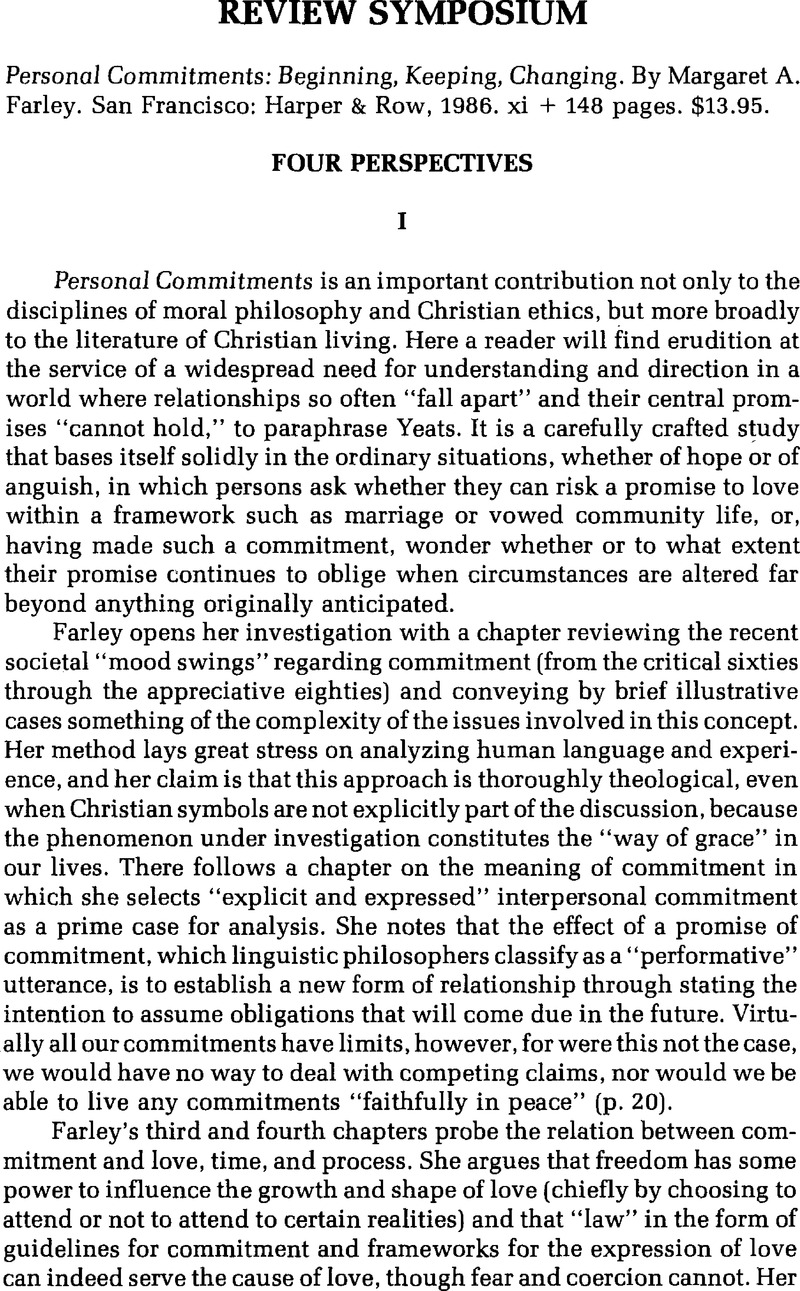No CrossRef data available.
Published online by Cambridge University Press: 09 September 2014

1 See Ehrenreich, Barbara, The Hearts of Men: American Dreams and the Flight from Commitment (Garden City, NY: Doubleday Anchor Books, 1984)Google Scholar; Bellah, Robert N.et al., Habits of the Heart: Individualism and Commitment in American Life (Berkeley: University of California Press, 1985)Google Scholar; Mead, Margaret, Culture and Commitment (Garden City, NY: Natural History Press, 1970)Google Scholar; Janeway, Elizabeth, Powers of the Weak (New York: Morrow Quill Paperbacks, 1981)Google Scholar; Rubin, Lillian Breslow, Worlds of Pain: Life in the Working-Class Family (New York: Basic Books, 1976)Google Scholar; Cannon, Katie Geneva, “The Emergence of Black Feminist Consciousness” in Russell, L., ed., Feminist Interpretation of the Bible (Philadelphia: Westminster, 1985), pp. 30–40Google Scholar; Davis, Angela Y., Women, Race, and Class (New York: Vintage Books, 1983)Google Scholar; Bernard, Jessie, The Future of Marriage, rev. ed. (New Haven: Yale University Press, 1982)Google Scholar.
2 The phrase is Kelsey's, David in The Uses of Scripture in Recent Theology (Philadelphia: Fortress, 1975), p. 175Google Scholar.
3 See my essay, “Feminist Consciousness and the Interpretation of Scripture,” in Russell, , pp. 41–51Google Scholar.
4 Ibid., p. 41.
5 I have to some extent done what Cahill suggests regarding Aquinas, Thomas in my earlier essay, “Fragments for an Ethic of Commitment in Thomas Aquinas,” in Tracy, David, ed., Celebrating the Medieval Heritage: A Colloquy on the Thought of Aquinas and Bonaventure (The Journal of Religion, vol. 58, Supplement), pp. S135–55Google Scholar.